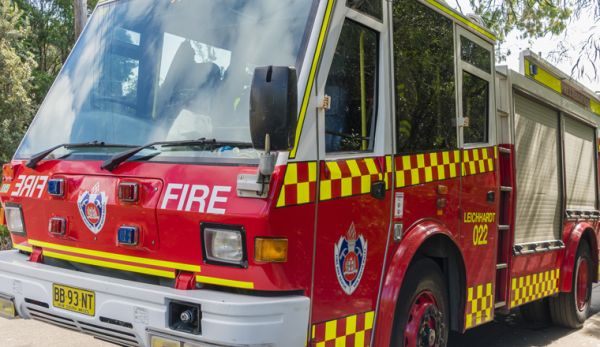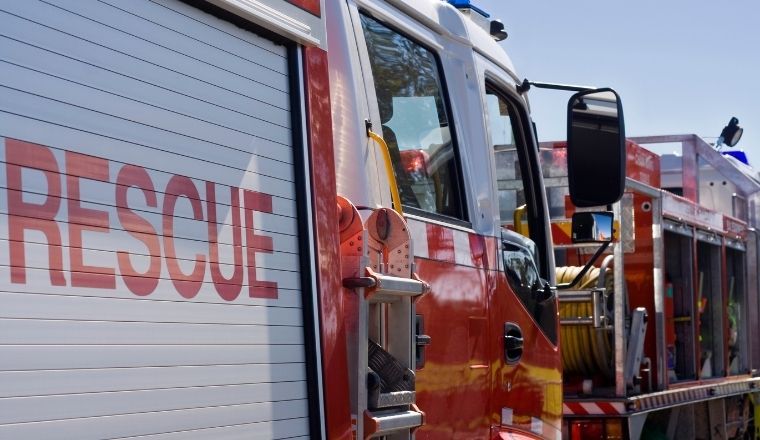Helping frontline staff stay mentally healthy
Some New South Wales public servants regularly face stressful situations due to the nature of their job, including those in emergency services. In order to deliver world-class public service, we need to ensure public servants know how to maintain their wellbeing and can get the support they need.

Firefighters regularly work in challenging contexts, such as searching for someone in a smoke-filled room, racing towards a fire, or providing rescue services and support. Healthy behaviours can keep firefighters doing their best work. Healthy behaviours include recognising when they’re not doing well and reaching out for help.
However, national research with police and emergency services agencies has found firefighters are less likely to seek help than the average person. Many already live with high or very high psychological distress.
The NSW Behavioural Insights Unit recently partnered with Fire and Rescue NSW to increase the impact of FITMIND, a program to increase resilience and mentally healthy behaviours among firefighters. Our partnership was part of wider work the NSW BIU does to support behaviour smart organisations.
What we did
There were three behavioural outcomes Fire and Rescue NSW wanted to change:
- Firefighters taking regular action to support their wellbeing
- Recognising signs of ill-health in themselves and others
- Seeking help when they need it for themselves and others
We broke down these aims into more specific behaviours. For example, one part of recognising ill-health is taking a minute to check in with yourself after a stressful situation.
We identified the barriers to achieving behavioural change. Some were physical, such as finding a place to have a quiet conversation in a busy fire station. Others were mental, for example, feeling like they needed to be the ‘strong one.’
Fire and Rescue NSW then incorporated evidence-based strategies from behavioural science into their program to overcome these barriers:
- Planning and commitment to overcome inaction: the FITMIND program helps firefighters use planning to break down abstract ideas about wellbeing into concrete actions. They will make a personal plan, with three simple actions they commit to taking for their mental health.
- Implementation intentions: firefighters will be asked to identify what might get in the way of them completing their healthy behaviours. They will then think of actions they could take to overcome those obstacles. This if-thenplanhelps people remember their goals and think deeply about their behaviour.
- Cues that last beyond training: firefighters will be given a fridge magnet postcard to write their three actions on. The postcard will be an ongoing reminder of the actions they agreed to take.
- Social support: in training, each person will be paired up with a support buddy. At the end of the training, buddies will keep checking in with each other. This social support makes it more likely they will complete their goals.
- Influential messengers: FITMIND trainers will work with the station commander of the crew to help them be champions for wellbeing. They can encourage people to keep using the training after it finishes.
What’s next?
Later this year, Fire and Rescue NSW plan to test the impact of FITMIND by running a randomised controlled trial.
How you can use this in your work
You can support the wellbeing of frontline staff by using behavioural insights:
- Identify concrete behaviours you can target. Talk to frontline staff to understand how their work environment makes it easier (or harder) for them to stay healthy. What are the behaviours staff need to do to stay healthy? What is getting in the way of them doing those behaviours?
- Help staff make a plan to take care of themselves and overcome obstacles. For example, if staff know they are swamped, is there a quiet point in the day when they can check in with themselves?
- Use timely reminders and cues. Have influential messengers send encouraging messages to staff about the benefits of maintaining their health plan or have visual reminders of wellbeing activities that can be done at work.
If you work in NSW Government and have a behavioural problem that would benefit from behavioural insights, we can provide rapid advice. Click here to book a 30-minute clinic with us.
Please contact us if you would like to find out more about our work.
